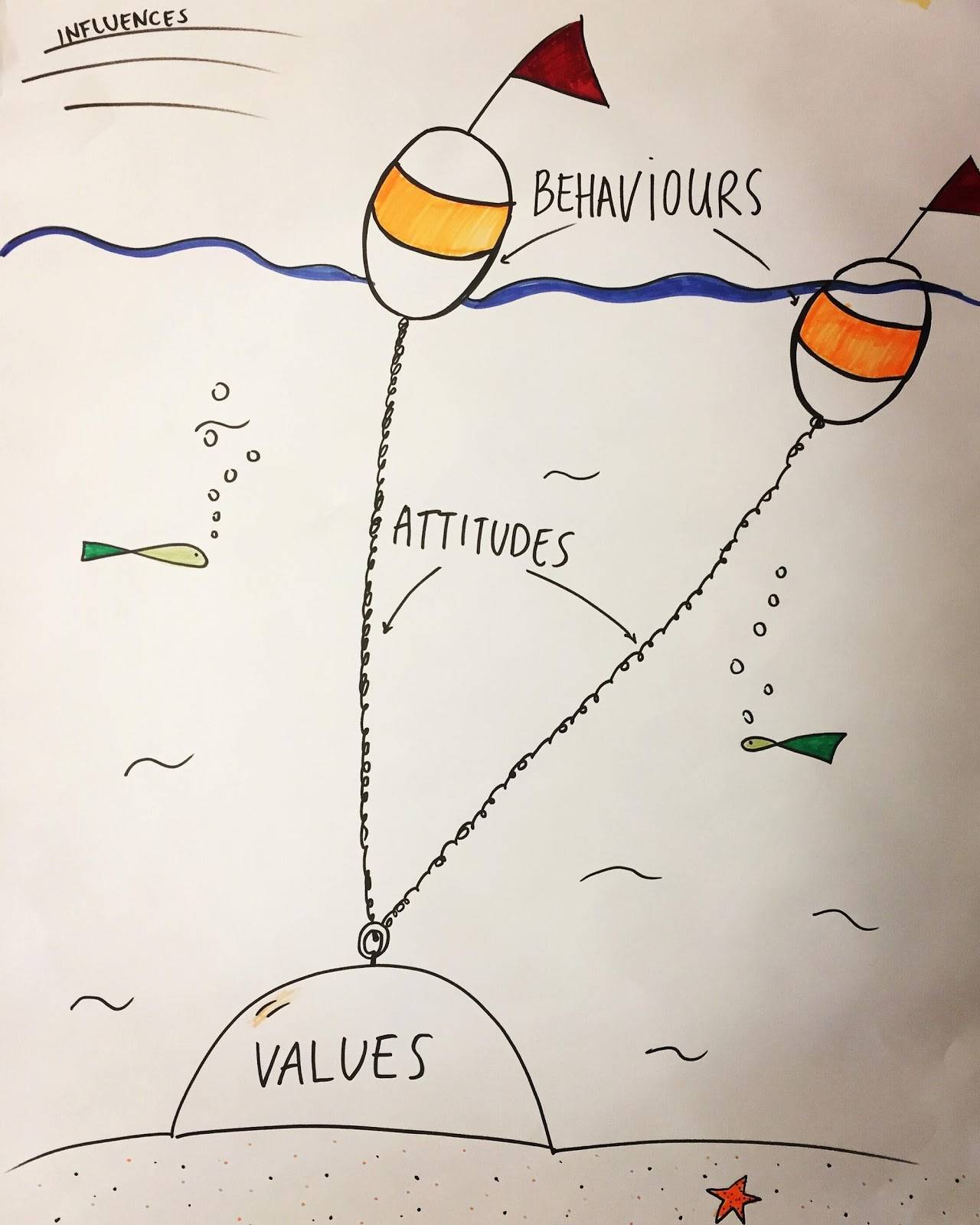Everything we do and decide to act upon is grounded in our conscious or unconscious values, attitudes, norms, and point of view. Values, Attitudes, Behaviours, and Norms are concepts closely linked together. When you are part of any organization, you bring your deeply held values, beliefs, and norms to the organization. They are shown to others in the way you behave and act as well as in the attitude you communicate. These concepts co-mingle with those of the other members to create an organization or family culture.
Values
Values are qualities that are considered worthwhile. They represent your highest priorities and driving forces. Value statements are grounded in values, values guide attitudes that define how people want to behave with each other in an organization, an institution, a company, or a family. Value statements describe actions that are the living enactment of the fundamental values held by most individuals within the organization. They are statements about how the organization will value and act towards, for example, customers, suppliers, and the internal community from e.g HR issues to working hours.
The following are examples of values. You might use these as the starting point for thinking about and articulating them as a human being. Bear in mind that they can be interpreted in different ways for different people. Therefore they are important to clarify and discuss.
Your values are made up of everything that has happened to you in your life and includes influences from your parents and family, your religious affiliation, significant life events, your friends and peers, your education, your workplace, your media use, community, culture, major historical events and more.
Examples of Values
Here are some examples of dominant values. The highlighted words can be interpreted very differently depending on the person and therefore it is important to be clear on the meaning for each person. Also, they can all be values important and unimportant in all categories below.
- Family and friends – caring for each other, family comes first. Responsibility, loyalty, respect, friendliness.
- Workplace – doing your job properly; quality, competence, ambition, flexibility, approving/disapproving of ‘foreign orders’, equality, diversity, respect, compassion.
- Educational institutions – the valuing or otherwise of learning; the value of self in relation to an ability to learn (this often depends on personal experience of schooling, whether positive or negative), collaboration, efficiency, wisdom.
- Significant life events – marriage and the importance and role of marriage and children; separation and divorce and the value change that may be associated with this (valuing of self or otherwise), challenge, honesty.
- Religion—beliefs about ‘right and wrong’ and beliefs in gods, empathy, generosity, optimism.
- Culture—a cultural value such as the importance of individuality as opposed to conforming to groups, teamwork, influence.

